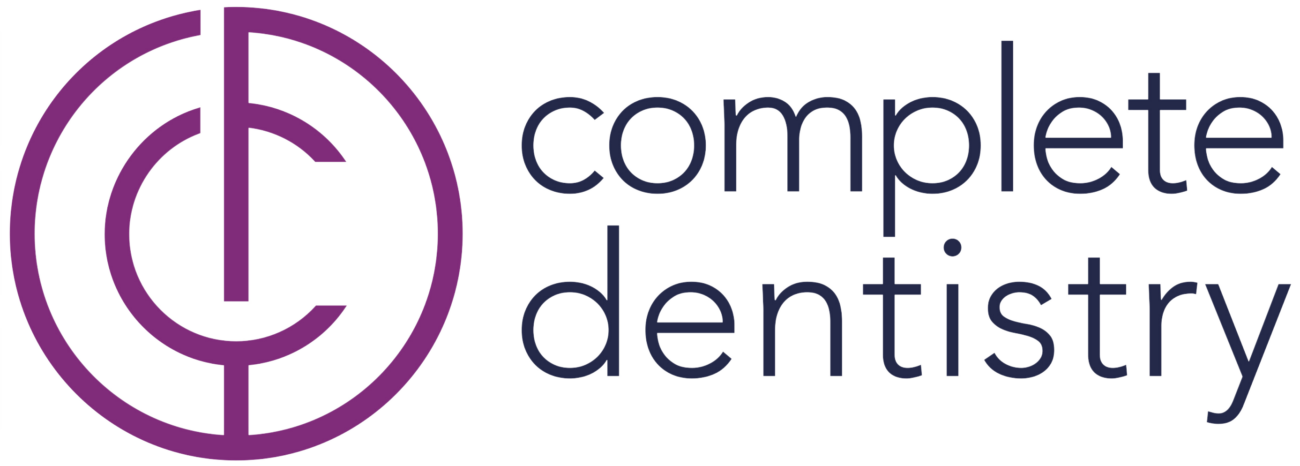Frequent headaches, neck, and jaw pain, worn teeth, and a clicking or popping jaw can all be signs of a temporomandibular disorder or TMD- often referred to as TMJ. For many patients, an untreated bite disorder can adversely affect their daily quality of life. Dr. Chambers has extensive training in diagnosing and treating bite disorders such as TMJ in our Lexington, KY office. We can help patients achieve results that will not only relieve symptoms but restore dental health at Complete Dentistry For All Ages.

What are TMJ Disorders?
The TMJ, or the temporomandibular joint, is a small joint located in front of your ears, responsible for the opening and closing of the mouth. TMJ is also commonly used to describe a temporomandibular disorder (TMD) in which the jaw joints or teeth do not fit together properly, resulting in an imbalance in the bite. In almost all cases, a TMJ disorder will cause tooth wear and may contribute to tooth decay or gum disease.
Common Causes of TMJ Disorder
There is no single cause for TMJ dysfunction. Any number of factors or combination of factors may be to blame including:
- Trauma to the head, neck, or face
- Trauma to the TMJ joint or arthritis
- Hormonal changes or imbalances
- Malocclusion (where the jaws do not line up correctly, resulting in bite problems)
- Stress
Common TMJ symptoms include:
- Teeth grinding or clenching, often characterized by tooth wear
- Headaches
- Neck and shoulder pain
- Limited mobility in the jaw
- Clicking or popping when opening or closing jaw
- Earaches
As with the causes, symptoms of TMJ disorder vary greatly between patients. TMJ symptoms often mask themselves or are similar to those of other medical conditions, making diagnosis difficult.
TMJ Treatment Options in Lexington, KY
There are multiple options for patients with TMJ disorders:
Mouthguards and Splint Therapy
Dr. Chambers may recommend the use of a mouthguard or dental splint to alleviate specific symptoms of TMJ disorder. A mouthguard or splint is often the first step, used early in treatment and not needed as a long-term solution. A dental split can be helpful to help identify a comfortable and stable bite position.
Bite Correction Therapy
When appropriate, our dental care team will perform occlusal equilibration – or bite correction, to bring your teeth into proper contact. This will allow the jaw to open and close in its proper position and eliminate stress on the joints and resulting pain.
This process is a series of adjustments made to the teeth which may include:
- Removing tooth structure
- Applying dental crowns or porcelain veneers
- Orthodontic treatment
- Implant dentistry
Botox for TMJ
Dr. Chambers offers therapeutic Botox to treat the symptoms of TMJ disorders. Botox injections can be strategically placed to relax facial and jaw muscles and minimize pain and discomfort. Dr. Chambers will evaluate the function of your jaw joints and discuss your symptoms to determine if Botox is the best solution. For many patients, it may be part of a larger treatment plan and used to help the jaw relax so that the bite can function naturally and without resistance.
Orthodontics
If the teeth are not in the proper position, orthodontics may be needed to reposition the teeth, allowing them to fit together harmoniously. For adults who wish to avoid traditional metal braces, Dr. Chambers offers Invisalign braces for more discreet and comfortable treatment.
Restorative Dentistry
In cases where teeth have been significantly worn and damaged, you may need restorative dentistry to bring your teeth back to their proper health and beauty. We may use dental crowns, porcelain veneers, or cosmetic bonding to restore your teeth back to full function.
TMJ Treatment Video Testimonials
Temporomandibular Disorder FAQs
Discover more about TMJ disorders here.
What can you do at home for TMJ disorder?
At home, you can take several steps to relieve TMJ discomfort. Applying heat or cold packs can reduce inflammation and ease muscle tension in the jaw. Gentle jaw exercises and stretches, as a dentist or physical therapist recommends, can help improve mobility and relieve stiffness.
Additionally, practicing stress-relief techniques, like deep breathing, and avoiding hard or chewy foods can minimize strain on the joint. Using an over-the-counter pain reliever and a night guard if you grind your teeth at night may also provide relief.
What causes TMJ to flare up?
TMJ flare-ups can be caused by various factors, such as stress, which often leads to teeth grinding or jaw clenching. Other triggers include chewing hard or sticky foods, poor posture that strains the jaw muscles, or even sleeping in a position that puts pressure on the jaw. Medical factors, such as arthritis or a recent dental procedure, can also contribute to flare-ups. Recognizing your triggers can help manage and reduce the frequency of TMJ pain.
Can TMJ only be present on one side of the jaw?
TMJ disorder can affect only one side of the jaw, depending on which side of the joint is inflamed, misaligned, or overused. Symptoms such as pain, clicking, or limited movement might be felt more on one side, especially if there’s an injury or habitual pattern, like chewing on one side or clenching one side of the jaw more. However, it’s also possible for both sides of the joint to be affected, depending on the cause of the TMJ disorder.
Does TMJ change the shape of your face?
Severe or prolonged TMJ disorders can subtly change the shape of your face over time. Chronic jaw muscle tension can lead to a more squared or asymmetrical appearance if muscles on one side are overused or become swollen. In extreme cases, prolonged misalignment or joint issues might impact the jawline or cheekbone areas. However, such changes usually take time and may be more noticeable if the condition isn’t treated.
Can an X-ray detect TMJ?
Yes, an X-ray can help detect certain aspects of TMJ disorders, especially if the issue involves structural problems with the jaw bones or joints. However, a standard X-ray may not show detailed information about soft tissues, such as cartilage or ligaments in the jaw.
Dentists or specialists may sometimes recommend more advanced imaging techniques, like MRI or CT scans, to gain a clearer picture of the joint and surrounding tissues, as these provide better insight into potential inflammation or disc displacement.
What lifestyle changes can help with TMJ pain?
Several lifestyle changes can help reduce TMJ pain, such as avoiding hard or chewy foods, practicing relaxation techniques to manage stress, and maintaining good posture. Avoiding habits like chewing gum or resting your chin in your hand can also reduce strain on the jaw joint. Making these small adjustments can play a significant role in managing TMJ symptoms.
Schedule a Dental Appointment
If you have noticed symptoms of TMJ, call Complete Dentistry For All Ages at 859-251-3809 or request a dental consultation on our website.
